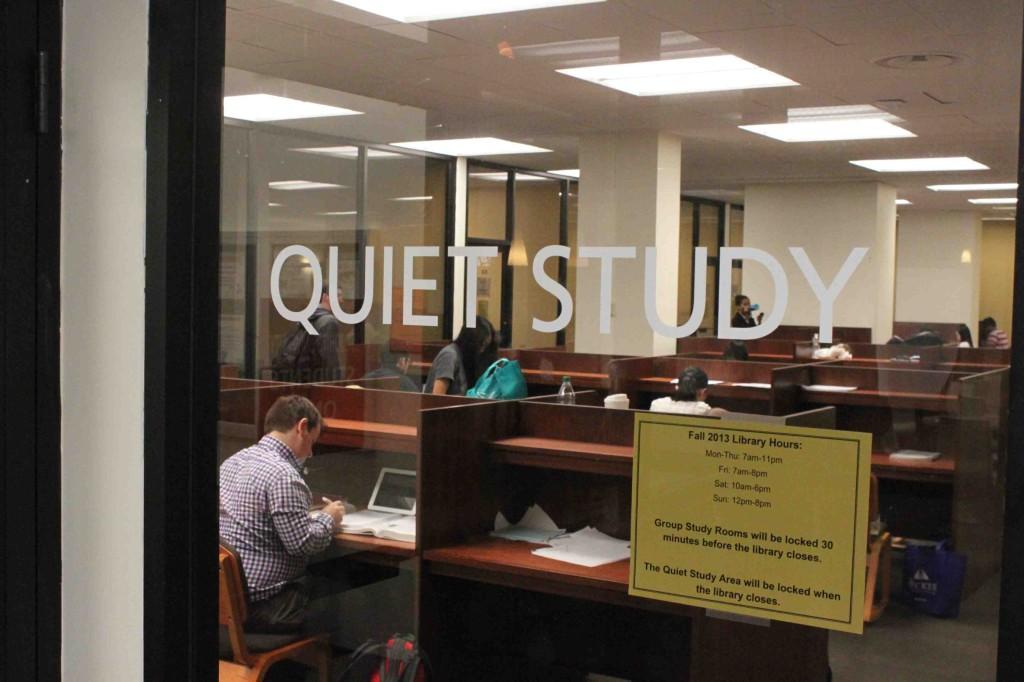Do you need to study in the library at 3 a.m.? Now, it’s possible.
The University’s Provost, Robert A. Mangione, approved the funding necessary to keep the quiet study area of the first floor of St. Augustine Hall open 24/7 for the rest of the 2013-14 academic year, according to Theresa Maylone, the dean of University libraries.
Maylone added that the funds, costing $35,000, provides Public Safety with the oversight of the study space until May 13, 2014.
“We are all—and especially the library—looking forward to an open consideration of this very important resource for all students on the Queens campus,” she said. “We are eager to provide the 24/7 study space that is so obviously needed and desired this year.”
Although a decision has been made for the rest of this academic year, the question of whether this is the appropriate location to house students for 24/7 study space is far from gone. The Library will continue to discuss with the Provost’s Office, Student Government, Inc., Public Safety and other facility services about the future and effectiveness of this study space over the course of the next seven months, according to Maylone.
Maylone stressed that the issue leads to a broader question campus-wide, and the approval now gives administrators a chance to look at this resource more closely and effectively.
“We do need, though, to evaluate whether this space is truly the most appropriate one based on our experiences this year with actual use, and hopefully with other means of assessment which we would want to undertake with representative student input,” she said.
Maylone gave an example of the University opening up Montgoris Dining Hall in 2009 for late-night study sessions, and how it did not work.
“That wasn’t right,” she said. “No one wants to sit in those plastic chairs to study. The kind of study environment that students want and need is more of an appropriate question.”
In the near future, the second floor of the library will be become the home of the College of Professional Studies. With these renovations being made, Dean Maylone also shared that many other schools address the issue of study space when undergoing renovations as well.
A few years ago, the Manhattan campus opened a section of its library that could be open and used 24/7. Now that a location has been chosen for the 2013-14 academic year, it buys administration time to open up conversations about where a
permanent location might be campus-wide.
In regards to the future, Maylone doesn’t see the need for such a space dying down. The University recognizes the amount of students who both work and go to school or who are a part of the pharmacy program, that need quiet space at all hours of the night.
“I don’t think that there will be any time in the foreseeable future that such space will not be needed—we simply need to do the best job possible in making it the best and most
appropriate space,” she said.














